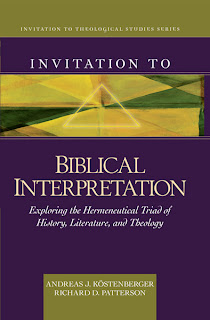117 pages
Counsel for Christian Workers is a practical help guide for Christians in the workplace. It contains fifteen chapters of 6-8 pages each, and has the aim of giving godly wisdom and advice for Christians serving in either full-time or strategic Christian ministry. Basically it is useful for every believer!
Chapter headings include An Earnest Man, Workers who are Successful, Obedience, The Kind of Labourers Wanted and A Great Leader and Good Soldiers.
This is one of those books that, every few pages, has a sharp piece of wisdom to share. This is pretty common to the works of Spurgeon, the 19th century preacher and trainer of young ministers. Lectures to My Students is another very helpful book for pastors to have a look through. Spurgeon is rarely lost in the clouds when he writes theology. The impression one gets from reading his books is that his eye is always on the practical application of God's word to right living.
Some examples in this book:
Some examples in this book:
Young men, if you become diligent...you are likely men to be made into ministers; but if you stop and do nothing until you can do everything, you will remain useless – an impediment to the church instead of being a help to her. (p10)
Be content, and labour in your sphere, even if it be small, and you will be wise. (p11)
Get full assurance of your own salvation. There is no weapon like it. (p13)
Some comments surprised. I wondered about his view of overseas Christian work given this comment:
You may imitate Andrew [the apostle not the blog author!] in not going far afield to do good. Many Christians do all the good they can five miles off from their own house, when the time they take to go there and back might be well spent in the vineyard at home. (p11)
There is also a chapter on evangelism in which Spurgeon gives practical tips for sharing Christian faith. For example, he suggests the shedding of tears can be a help! He shares the story of a man who was verbally abused for giving out a pamphlet on Christianity. The man cried in front of his abusers out of concern for them. Years later he is reunited with one of his abusers who has been converted!
In Summary
Counsel for Christian Workers is a brief and practical book of godly wisdom to help Christians live and share their faith in Christ more effectively. You will see the occasional anachronism. You will also see the occasional pearl of wisdom learnt from years of committed ministry. If you have a young adult who is maybe thinking through how they can be serving God in their work, this book may be helpful for them. Having said that, I found it a useful book to reflect on too.
The best little piece of wisdom I took away from this book was from a story Spurgeon tells of a Christian man who had been behaving poorly. I leave it with you.
This man had erred from right acting because he had erred from right believing. (p111-112)






.jpg)